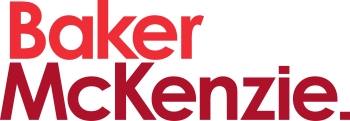Introduction
In VM Remonts the European Court of Justice (ECJ) ruled for the first time on whether a company can be liable for competition law infringements that result from the actions of a third-party service provider if the service provider is not an agent of the company and takes initiatives that clearly exceed the tasks assigned to it.
The judgment confirms that a company can be held liable for a concerted practice carried out by an independent service provider if:
- the service provider was acting under the direction or control of the undertaking;
- the undertaking was aware of the anti-competitive objective and intended to contribute to it by its own conduct; or
- the undertaking could reasonably have foreseen the anti-competitive acts of its competitors and service provider, and was prepared to accept the risk of the concerted practice.
Although this scales back the test proposed by the advocate general – which suggested a presumption of liability that the defendants would have to rebut – the judgment has important implications for compliance programmes and counselling.
Implications
The case concerned facts so extreme that they would appear highly unlikely to transpire in practice. Three tenderers for school food contracts each mandated the same third-party consultant to draft their tender responses. The consultant – an independent company – drafted tenders that carefully offered slightly but sufficiently different prices to ensure that only one tender would win. All tenderers were accused of being party to a bid-rigging cartel. On appeal, the national court asked the ECJ to what extent a company which claims to know nothing of an independent service provider's actions is still liable for cartel-type conduct.
The ECJ clarified that employees and genuinely independent service providers should be looked at differently. An employee or a consultant acting under a company's direction or control will automatically create liability for the company. It is of no use arguing that the employee or controlled entity 'went rogue'. The company's relationship is such that it cannot avoid liability.
Conversely, if the entity is independent, the company can be liable only if:
- it is aware of the anti-competitive objective and contributes to it; or
- it should have known of the anti-competitive outcome but was prepared to take the risk.
The case goes much further than the extreme facts at issue. Though it is rare for competitors to appoint the same consultant to answer tenders, the use of consultants for benchmarking studies, statistical collection or marketing surveys is common. Competitors may also have common suppliers, consultants or advisers with whom they share information that could be of use to rivals. In these circumstances, the risk of intentional or negligent conduct that leads to sharing of pricing or future bidding strategies could risk liability under the tests posited by the ECJ.
Counselling considerations
When considering instructing a service provider in a sensitive area (relating to pricing, tenders or anything else involving competitors), thought should be given to the following:
- Is the service provider genuinely independent of the contracting company or is it acting under the user's direction or control? Two things are relevant:
- How much autonomy or flexibility does the service provider have with regard to the way in which the activity concerned is to be carried out?
- Are there any organisational, economic and legal links between the service provider in question and the contracting company? This will involve consideration of the corporate/shareholding links between the two.
- Assuming that the service provider is genuinely independent of the contracting company, the ECJ is happy to distinguish its conduct from that of an employee whose acts are in principle attributed to his or her employer. However, there are two caveats which would lead to the contracting company being back on the hook:
- Was the contracting company aware of the anti-competitive objectives pursued by its competitors and the service provider and did it intend to contribute to them by its own conduct?
- Could the contracting company have reasonably foreseen the anti-competitive acts of its competitors and the service provider and was it prepared to accept the risk?
Practical tips
|
Ensure service provider is independent |
Consultants likely to be collecting or using sensitive information should be independent service providers rather than agents or quasi-employees. Boilerplate language in the assignment agreement can be used to make this clear, as can clarification in the specification of services that the consultant is free to deliver on the project under its own responsibility, rather than working to the direction or under the control of the customer. |
|
Ensure employees are aware of risks of outsourcing to service providers projects involving sensitive information |
Those instructing service providers in high-risk contexts (eg, bids, pricing, customer or market opportunities) should understand the risk of using the service provider as a knowing or inadvertent conduit to illegal communication with competitors. Information should be provided under a suitable non-disclosure arrangement and with an obligation to abide by all laws, including competition law, in undertaking the project. Any red flags (eg, that information will also be collected from competitors or disseminated to them) should be noted and escalated. |
For further information on this topic please contact Bill Batchelor or Grant Murray at Baker & McKenzie by telephone (+32 2 639 36 11) or email ([email protected] or [email protected]). The Baker & McKenzie website can be accessed at www.bakermckenzie.com.
This article was first published by the International Law Office, a premium online legal update service for major companies and law firms worldwide. Register for a free subscription.




